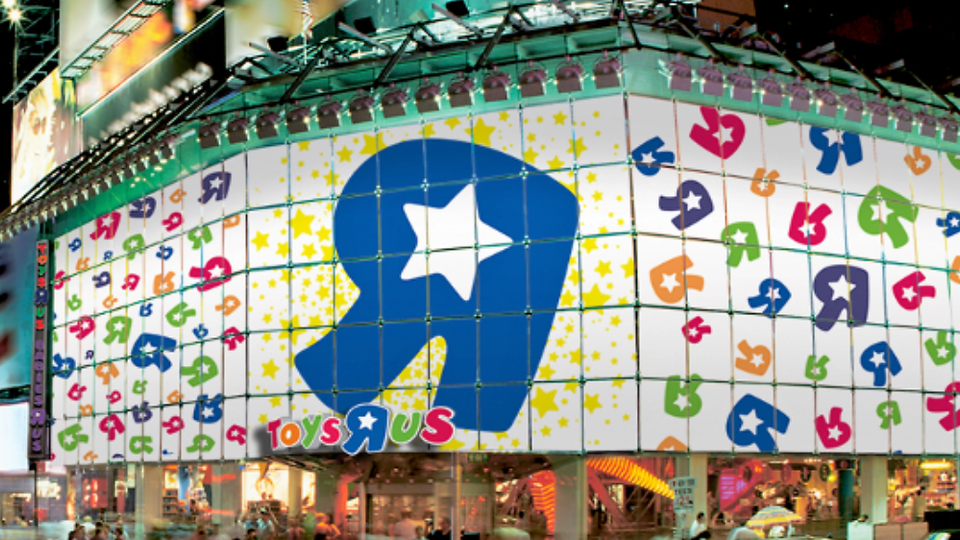Commentary
‘Retail Apocalypse’ shakes global entertainment properties
The seeds of upheaval in the retail entertainment industry predate the global health crisis, resulting in a slew of mergers, acquisitions and restructurings.

May 3, 2021 by Kevin Williams
We seem to be in another period of major redevelopment and upheaval within entertainment facility property — not just fueled by the investment towards the post-COVID landscape, but also with the impact of the "Retail Apocalypse," fueled by the massive upheaval in the market. Continuing to underpin our evaluation of trends in the market regarding mergers, acquisitions and restructuring, some major developments were charted recently.
The roots take us back to August of 2018, when Toys "R" Us entered into the voluntarily closure of some 800 toy stores. Soon after, an operation emerged from bankruptcy, called Tru Kids, that attempted once again to open a retail store operation based on the brand.
In 2019, two locations were opened in Houston and New Jersey, operating under new management. (This is separate to the reopening of the brand in Australia, under an agreement with Hobby Warehouse.) These new, scaled-down 6,500-square-foot locations were more open-planned toy showroom venues, looking at adding "retail-tainment" elements (such as a Nerf shooting range), towards creating a new interactive exhibition-style business approach.
Then came the global health crisis
Well, with the full impact of the global health crisis and the lockdown of businesses, this new concept was off to an incredibly rocky start — and so it was no real surprise when the news came, in February, that Tru Kids confirmed the permanent closure of the two initial retail stores, along with the suspension of plans for licensed partner business.
This news shows that another high-profile retail brand (even under new management) is finding the landscape impossible under the current conditions. However, it is expected that dedicated children's entertainment center business will be applied from new developers in the coming months.
Talking about adapting to current market needs, our readers will remember the closing of the original Playdium entertainment facility in Mississauga (first opened in 1996). This was not the abandonment by owner Cineplex, but the continuation of restructuring and development of the ongoing "Cinema Entertainment Center" initiative.
The next stage was revealed in February, with the opening of a new facility Playdium venue in Dartmouth Crossing, Canada. The new 30,000-square-foot location comprises a bowling alley and amusement zone, and also includes "VRcade ATOM" eight-player immersive virtual reality games, developed by partner VRstudios.
The site also includes its own hospitality offering and sits adjacent to a 12-screen Cineplex Cinema. This marks the third Playdium venue, sitting alongside the eight Rec Room entertainment brand, also run by Cineplex. These moves come as the company redefines the balance between its theaters and location-based entertainment offerings.
Redefining theater post COVID
This redefining of theater and CEC balance will be fueled by new investment in the operation and it was announced, at the end of February, that Cinepelex had been holding a private placement note offering of investment and had successfully raised around $200 million in capital. This indicates a strong level of support in the current and future plans presented by the executive team to investors.
It will be interesting to see how many other cinema chains will be looking at this initiative towards driving their needs to raise new investment capital, with hopes to stay relevant in the changed entertainment landscape going forward.
Talking about how the international cinema chain business is attempting to restructure itself towards the new dynamics of the post-COVID landscape, a new development was reported from Asia. Missed by most of the media, CJ CGV, the largest multiplex cinema chain in South Korea, revealed a massive restructuring of its business that include the launch of a brand-new business vertical.
It was announced that CJ CGV would now allow guests to bring game consoles into the movie theaters, with the ability to rent the screens to play the games on the giant screens. This move mirrors much of the "crossover" business developments iterated previously. This latest development allows the reservation of the screen currently in venues within the Seoul area, hocked up to the users' console and playing their own games free of charge.
This utilization of COVID-hit business reflects the need to diversify and address the debt crippling the corporation during the lockdown due to the negatively impacted attendance during the global health crisis. CJ CGV continued with extreme measures to cut debt by announcing, in 2020, it would be selling a stake in its Vietnam property business.
CJ Vietnam represents some 488 screens across the country, and is making available a 25% stake in this operation. At the same time, CJ has started a process of shuttering theaters to address the impact of COVID measures on the territory.
While plans are currently shelved, CJ had been working on its own CEC projects, with much of this driven by the CJ 4DPlex division that had consumed the Simuline operation in 2016. Developments concerning an entertainment focused cinema venue business are expected to be proposed in the restructuring process, emulating other plans from international chains.
Acquisitions continue
Moving from cinema to the wider entertainment landscape, the need to take control of the entertainment offering in high-footfall locations was underpinned by news that Mellors Group had been successful in its ongoing bid to acquire the iconic visitor attraction, "Skegness Pier."
It is one of the U.K.'s landmark seaside attraction destinations, and Mellors acquired the venue from leisure property advisors Christie & Co. for a reported £3 million ($1.38 million). This will be the latest acquisition in the organization's list of entertainment operations, including the adjacent Fantasy Island Resort and running numerous entertainment events in the U.K.
Staying with the U.K., the iconic, if troubled, "Dreamland" amusement park in Margate was revealed to have been sold by owners Thanet District Council — with the council having to execute a compulsory purchase for the seaside entertainment venue in 2011.
Now it has been revealed that the seaside amusement park was sold by the council, in December 2020, for the sum of £2.3 million ($3.18 million) to Sands Heritage — acquiring the park consisting of a cinema, scenic railway, amusements and parking. It was revealed that compensation will be paid to the original owners, to the tune of £5 million ($6.91 million). The council is facing the facts of its inability to manage the property or achieve a return on its £19 million ($26.25 million) investment in rebuilding the derelict attraction.
The U.K. also figured in another announcement of a new entertainment project.
Revealed by Intergame media, "Concourse Shopping Centre" in Skelmersdale, U.K., unveiled that Moorgate Developments had submitted plans to the local council for the installation of an attraction-based experience on the mall's second floor. The details for this mixed-use leisure entertainment development have yet to be revealed, but are said to include VR attractions, mini-golf, bowling and hospitality. The installation is encompassing existing retail units in its design.
Moving to the warmer climes of Malaysia, the casino and entertainment corporation Genting announced its plans to invest some $800 million into a brand-new theme park project.
Under the title "SkyWorld," this planned 26-acre theme resort will comprise some 26 attractions, as well as hotel and leisure elements. It is being built on the space currently used by the existing theme park, created by the organization.
The new park will comprise many attractions, including those based on brands from movie group 20th Century Studios, a subsidiary of Walt Disney Studios. The Genting entertainment interests have previously partnered with Walt Disney, having been one of the few Asian operators of The Void VR arena space property.
"Retail Apocalypse" is well under way.
(Editor's note: Extracts from this blog are from recent coverage in The Stinger Report, published by KWP and its director, Kevin Williams, the leading interactive out-of-home entertainment news service covering the immersive frontier and beyond.)
About Kevin Williams
Along with advisory positions with other entrants into the market he is founder and publisher of the Stinger Report, “a-must-read” e-zine for those working or investing in the amusement, attractions and entertainment industry. He is a prolific writer and provides regular news columns for main trade publications. He also travels the globe as a keynote speaker, moderator and panelist at numerous industry conferences and events. Author of “The Out-of-Home Immersive Entertainment Frontier: Expanding Interactive Boundaries in Leisure Facilities,” the only book on this aspect of the market, with the second edition scheduled for a 2023 release.
 ChatGPT
ChatGPT Grok
Grok Perplexity
Perplexity Claude
Claude






